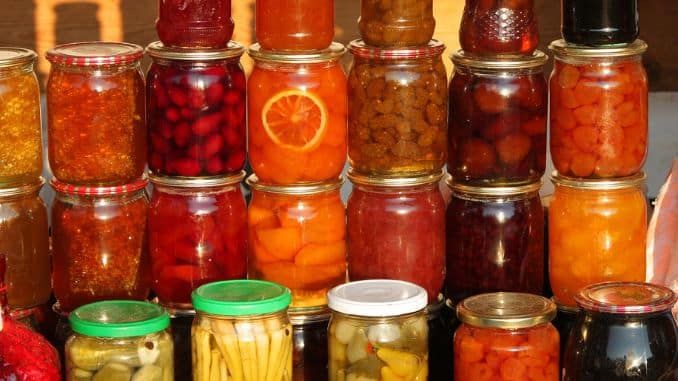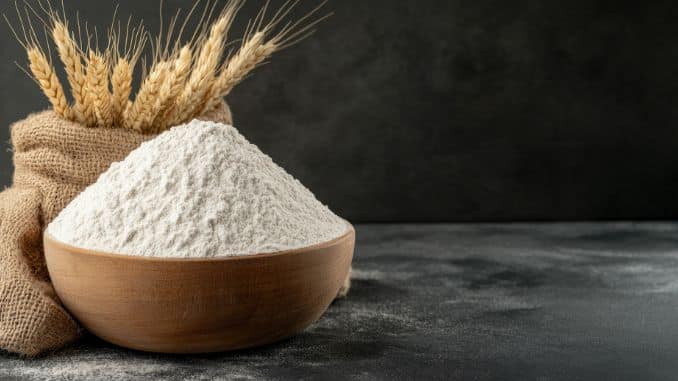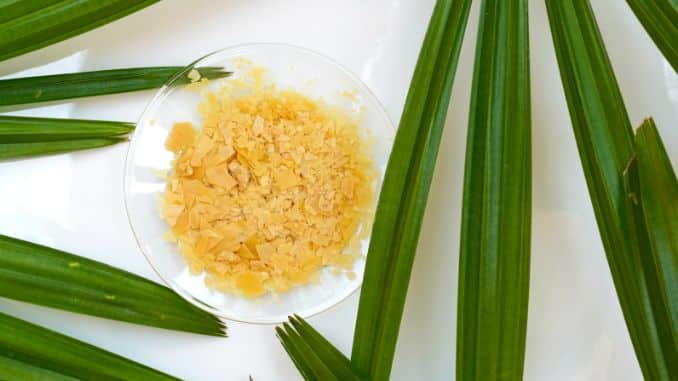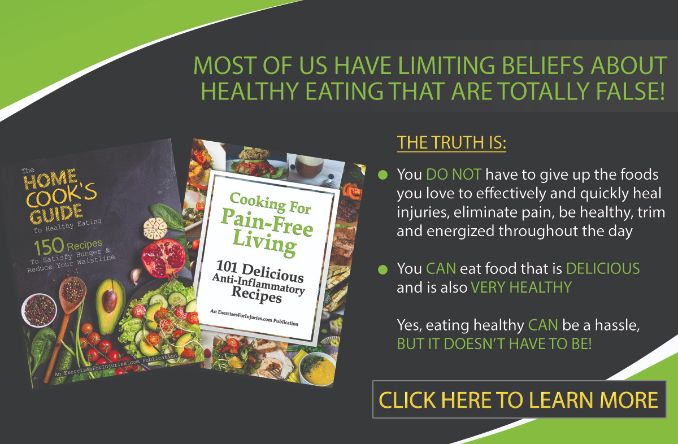We often trust the safety of the foods lining grocery store shelves, but many appealing labels hide ingredients that may seriously risk your health, raising questions like, Does Carnauba Wax Cause Cancer?
“Additives like artificial sweeteners and texture enhancers can cause health issues such as digestive problems, metabolic disorders, and cancer.”
Dive in as we uncover six common ingredients that could be sabotaging your well-being without you even realizing it.
Some people may recognize names like aspartame or caramel coloring, but they often misunderstand or downplay their effects.
We’ll highlight hidden additives like paraben and carnauba wax and explain why avoiding them is key to a healthier lifestyle.
Dive into these harmful ingredients and discover why you should leave them off your plate!
What Is Carnauba Wax?
Carnauba wax, also called “the queen of waxes,” comes from the leaves of the Brazilian palm tree, Copernicia prunifera. This tree, native to northeastern Brazil, has a waxy leaf coating to retain moisture in its hot, dry climate.
After harvesting, they refine the wax and use it in a wide range of products. It produces a high-gloss finish and is a popular ingredient in many industries due to its versatility.
Additionally, manufacturers often combine carnauba wax with other common food additives like palm oil or vegetable oils. Beyond food, carnauba waxes commonly appear in products like lip balms, lotions, car polish, and coatings for tablets and capsules.
Understanding The Risks
1. Carnauba Wax Compared To Other Food Additives
Evaluating carnauba wax is easier when compared to food additives linked to health risks like cancer. Does carnauba wax cause cancer?
Carnauba wax comes from plants, making it much less controversial than some synthetic or chemical additives found in processed foods.
- Artificial Preservatives (e.g., BHA, BHT): These commonly extend shelf life but researchers have flagged them for potentially linking to cancer and hormone disruption. In contrast, researchers have not linked carnauba wax to such risks.
- Artificial Colors (e.g., Red 40, Yellow 5): These dyes, widely used in candies and drinks, have been linked to behavioral issues in children and potential cancer risks. Carnauba wax, however, is a natural coating without such concerns.
- Processed Meats and Nitrites: Nitrites used to preserve processed meats (like bacon or sausages) form carcinogenic compounds during digestion. While carnauba wax may coat certain processed foods, it does not share the same health risks as nitrite additives.
2. Caution Around Overconsumption
Although experts regard carnauba wax as safe, it’s still wise to be cautious about overconsumption, especially with processed foods.
The wax is harmless, but the foods that typically contain it—like candies, chewing gums, and polished fruits—often have high amounts of sugar or unhealthy ingredients.
Eating large amounts of these foods can lead to negative health effects such as:
- Weight Gain – Due to the high sugar content taking too much can result in weight gain.
- Tooth Decay – Tooth decay is a possible risk because candies and gum commonly contain it.
- Digestive Discomfort – Individuals with sensitive digestive systems or underlying conditions like IBS or Crohn’s disease may experience discomfort after consuming products that contain this additive.
While carnauba wax is unlikely to cause toxicity, overeating processed foods with additives can raise the risk of long-term health problems.
In the long run, a diet rich in natural foods like fruits, vegetables, and lean proteins offers more health benefits than processed foods with additives.
For those cautious about food additives, the best strategy is to limit processed foods and choose fresh, uncoated options.
This approach avoids unnecessary exposure to additives, even if considered safe, and promotes a healthier, more natural diet.
Does Carnauba Wax Cause Cancer?
Food safety authorities, including the FDA and EFSA, deem carnauba wax safe, with no substantial evidence linking it to cancer. Does carnauba wax cause cancer? Currently, there is no scientific data to suggest that it does.
Carnauba wax is a natural product that passes through the body undigested and does not have known carcinogenic effects, unlike synthetic additives such as nitrates in processed meats or artificial colorings.
While concerns about food additives often arise due to their prevalence in processed foods, carnauba wax has not shown any toxic or harmful impact related to cancer in human studies.
Consume foods with carnauba wax in moderation, as they often contain high sugar [1], artificial chemicals, and are heavily processed. Does carnauba wax cause cancer? Scientific evidence does not suggest that carnauba wax causes cancer, and regulatory agencies consider it safe for use in food products.However, it is still important to consume such foods in moderation.
Other Harmful Additives And Ingredients You Should Avoid
1. Aspartame

Aspartame, an artificial sweetener in diet sodas and sugar-free products, should be avoided due to potential health risks.
It links to neurological issues like headaches and dizziness, disrupts metabolism in weight management, and may pose potential cancer risks, though research is ongoing.
Additionally, people with the genetic disorder PKU must avoid aspartame [4] because they cannot metabolize one of its components, phenylalanine.
Safer, natural alternatives like stevia or monk fruit offer a healthier way to satisfy sweet cravings without these potential dangers.
2. Paraben

Avoid parabens, commonly used as preservatives in foods, cosmetics, and personal care products, because of potential health risks.
These chemicals disrupt the body’s endocrine system by mimicking estrogen, leading to hormone imbalances and increasing the risk of breast cancer and reproductive issues.
While parabens [2] help extend product shelf life, they can accumulate in the body over time, raising concerns about long-term exposure.
Choosing products labeled as “paraben-free” and opting for natural preservatives can help reduce these risks.
3. Enriched Flour

Avoid enriched flour in processed foods like bread, pasta, and pastries due to its low nutritional value and health risks.
During processing, whole wheat loses its natural nutrients, with only a few synthetic vitamins and minerals added back.
This leads to a low-fiber product that can spike blood sugar and may contribute to weight gain, insulin resistance, and digestive issues.
Enriched flour lacks the essential nutrients of whole grains, making it a poor choice for a healthy diet.
Opting for whole grain or unprocessed flour alternatives is a better option for long-term health.
4. Sucralose
Avoid sucralose, commonly found in many “sugar-free” products, due to its health risks and impact on metabolism.
Marketed as a calorie-free sugar alternative, sucralose may disrupt gut bacteria, affect insulin sensitivity, and lead to weight gain.
Some studies have also raised concerns about its potential to release harmful compounds when heated, making it unsuitable for cooking.
Approved as safe in moderation, natural sweeteners like stevia and monk fruit offer a healthier alternative to sucralose.
5. Caramel Coloring

Avoid caramel coloring, commonly found in sodas and processed foods, due to its potential health risks. Some caramel colorings, particularly Class III or IV, can produce 4-MEI, a byproduct linked to cancer in animal studies.
Regularly consuming caramel-colored products increases long-term health risks, even though 4-MEI is considered safe at low levels. To minimize exposure, choose foods without artificial coloring or opt for natural alternatives.
Conclusion
In conclusion, although experts consider carnauba wax safe, its use in processed foods raises concerns about the risks of overconsumption. Does carnauba wax cause cancer? There is currently no evidence to suggest that carnauba wax is carcinogenic.
In moderation, carnauba wax poses less risk than additives like aspartame, parabens, and caramel coloring. Other additives are linked to serious health risks like cancer, hormonal disruption, and digestive issues.
The real danger lies in processed foods high in additives, sugars, unhealthy fats, and preservatives. Choosing natural, unprocessed foods and avoiding additives reduces long-term health risks and supports a healthier lifestyle. A diet rich in whole foods like fruits, vegetables, and lean proteins promotes well-being and avoids hidden additives.
Discover the Power of Healing Foods with Our Anti-Inflammatory Cookbook Bundle! Start your journey to feeling better today with easy, delicious recipes designed to reduce inflammation and boost your health. Perfect for anyone looking to eat cleaner and feel energized.
Frequently Asked Questions
Is Carnauba Wax safe for humans?
The U.S. Food and Drug Administration (FDA) lists carnauba wax as GRAS (Generally Recognized As Safe) under the Code of Federal Regulations (21 CFR 184.1978), while the EFSA evaluated carnauba wax in the context of food additives and concluded that it does not pose a safety risk to consumers.
In their assessment, the EFSA reaffirmed the safety of carnauba wax when used as a glazing agent or surface treatment for foods.
The EU Additives Regulation also lists it as an approved additive under E903.
Carnauba wax is safe, but remember that it’s often found in processed foods like candies and fruits with added coatings.
As with any food additive, it’s wise to consume it in moderation, particularly because these processed foods may come with other unhealthy ingredients.
A balanced diet prioritizing fresh, whole foods remains the best approach to overall health.
What Ingredients Should I Avoid in Processed Meats?
When it comes to processed meats, there are several ingredients to avoid due to their potential health risks.
A study by the National Cancer Institute [3] found that nitrates, particularly sodium nitrate, used as preservatives, can form harmful compounds called nitrosamines during digestion or cooking, increasing the risk of cancer in both animals and humans.
Processed meats are often high in sodium, which can lead to elevated blood pressure and increased risk of heart disease and stroke.
Additionally, manufacturers add artificial colors like Red 40 or Yellow 5 to many processed meats, linking them to behavioral issues and potential cancer risks.
Processed sugars, like high fructose corn syrup and dextrose, are also common in processed meats and can contribute to weight gain, insulin resistance, and metabolic disorders.
Another ingredient to be cautious of is monosodium glutamate (MSG), which enhances flavor but can cause headaches or nausea in sensitive individuals.
Similarly, manufacturers often add phosphates to retain moisture, but consuming them in large amounts is linked to kidney damage and heart disease.
Carrageenan, known for improving texture, is linked to gastrointestinal inflammation, while hydrolyzed vegetable proteins, with hidden glutamate, can trigger reactions similar to MSG.
Finally, smoking or grilling meats at high temperatures forms polycyclic aromatic hydrocarbons (PAHs), and synthetic preservatives like BHA and BHT add to cancer risks.
Avoiding these additives by choosing minimally processed meats or fresh cuts is a healthier option.
What Does Carnauba Wax Do to Your Body?
Experts generally consider carnauba wax safe for human consumption, and manufacturers commonly use it to coat fruits, candies, and other processed foods, giving them a glossy appearance and extending their shelf life.
When you consume carnauba wax, your body doesn’t absorb it; instead, it passes through your digestive system and is excreted undigested.
It lacks nutritional value and does not cause harmful effects in most people.
However, individuals with sensitive digestive systems or underlying conditions, like irritable bowel syndrome (IBS), may experience mild discomfort, such as bloating or upset stomach, after consuming foods coated with carnauba wax.
Overall, it is non-toxic, but like any food additive, you should use it in moderation, especially since it often appears in processed foods that may contain other unhealthy ingredients.
What Foods Have the Most Chemicals?
Foods with the most chemicals are typically highly processed items that contain various additives for preservation, flavor, texture, or color. Some of the top categories include:
Processed Meats
Foods like bacon, sausages, hot dogs, and deli meats often contain chemicals such as nitrates, nitrites, phosphates, and preservatives like sodium benzoate or BHT/BHA. These are used to extend shelf life and maintain color but can pose health risks, including cancer when nitrosamines form during digestion or cooking.
Packaged Snack Foods
Chips, crackers, and cookies frequently contain artificial flavorings, emulsifiers, and preservatives like monosodium glutamate (MSG), partially hydrogenated oils, and high fructose corn syrup. Many also contain food dyes like Yellow 5 or Red 40, which are linked to behavioral issues and potential cancer risks.
Sugary Beverages and Sodas
Soft drinks and sugary juices often contain high levels of chemicals, including artificial sweeteners (e.g., aspartame or sucralose), caramel coloring (linked to cancer in some studies), and preservatives like sodium benzoate (WHO, 2023).
Frozen Meals
Pre-packaged frozen dinners and ready-to-eat meals are laden with additives like artificial flavors, sodium-rich preservatives, and texturizers such as carrageenan. They also contain emulsifiers and coloring agents to improve their appearance and shelf stability.
Candy and Chewing Gum
Many candies and gums are coated with food-grade waxes (like carnauba wax) and contain high amounts of artificial sweeteners (e.g., sorbitol, xylitol), food colorings, and emulsifiers. Additives like titanium dioxide (for a bright white appearance) are also common, and some of these have raised health concerns.


